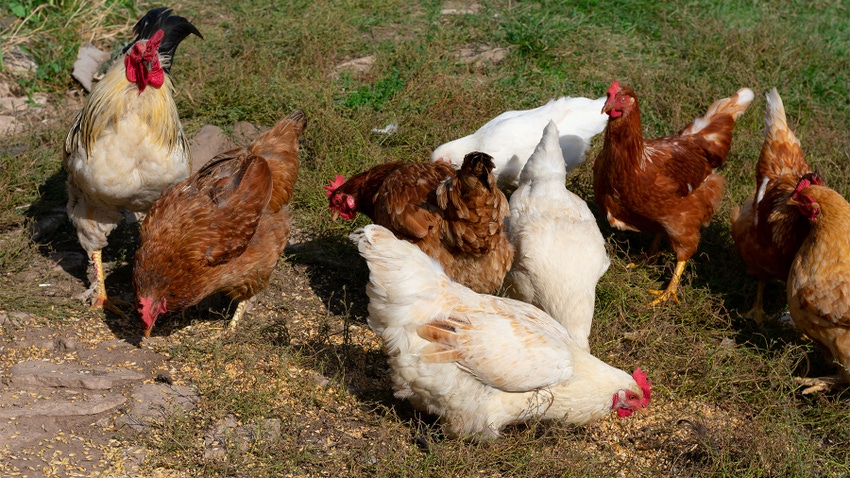
While it looked like Michigan, Ohio and the Northeast might manage through the fall wild bird migration without an avian influenza outbreak, that optimism ended with the Nov. 15 announcement of a backyard flock in Michigan’s Cass County testing positive for highly pathogenic avian influenza.
The southwest Michigan flock was confirmed positive by the Michigan State University Veterinary Diagnostic Laboratory.
The fall is a critical time for HPAI as wild birds can be infected and show no signs of illness, but they can carry the disease to new areas when migrating, potentially exposing domestic poultry to the virus.
This is the first case of HPAI in Cass County since the disease was first detected in the state in 2022, and the first detection of the disease in Michigan since March.
The flock included 60 birds of various species and will be depopulated to prevent spreading the disease, and the farm is quarantined. The Michigan Department of Agriculture and Natural Resources says prevention and risk reduction strategies are critical for keeping HPAI out of Michigan's domestic birds.
HPAI is a highly contagious virus that can be spread in various ways from flock to flock, including by wild birds, through contact with infected poultry, by equipment, and on the clothing and shoes of caretakers.
In the past 30 days, Minnesota is carrying the brunt of the outbreaks in the U.S. with 12 affected commercial flocks and two backyard flocks for a total of 1,253,350 birds.
South Dakota also has 12 affected commercial flocks but no backyard flocks, impacting a total of almost 500,000 birds.
Since August, USDA has confirmed infection in 364 commercial flocks in 47 states with 62.7 million birds affected.
One of the major indicators of HPAI is sudden death and high death losses. Sick birds may show neurological signs such as difficulty walking, lack of appetite, low energy or lack of vocalization.
Take precautions
According to the U.S. Centers for Disease Control and Prevention, the public health risk associated with avian influenza remains low.
MDARD presented a few key steps to protecting the health and vitality of Michigan s domestic birds:
Prevent contact between domestic and wild birds by bringing them indoors or ensuring their outdoor area is fully enclosed.
Wash your hands before and after handling birds, as well as when moving between different coops.
Disinfect boots and other gear when moving between coops.
Do not share equipment or other supplies between coops or other farms.
Clean and disinfect equipment and other supplies between uses. If it cannot be disinfected, discard it.
Use well or municipal water as drinking water for birds.
Keep the poultry feed secure to ensure there is no contact between the feed and feed ingredients and wild birds or rodents.
Reporting possible cases
Domestic bird owners and caretakers should watch for multiple sudden deaths in the flock, a drop in egg production, a significant decrease in water consumption, diarrhea, sneezing or coughing, or an increase in sick birds. If avian influenza is suspected in domestic birds, call MDARD immediately at 800-292-3939 (daytime) or 517-373-0440 (after-hours).
If anyone notices what appears to be unusual or unexplained deaths among wild bird populations, report these cases to the Michigan Department of Natural Resources (DNR) by using the DNR's Eyes in the Field app. Choose the Diseased Wildlife option among the selections for "Observation Forms."
Another option is to call the DNR Wildlife Disease Laboratory at 517-336-5030.
Stay informed
Subscribe to receive email notifications by visiting MDARD's website and clicking on the "Avian Influenza" link. After entering a valid email address, subscribers will receive updates and alerts regarding the status of avian influenza in Michigan whenever there are new developments to report. Additional resources can also be found at michigan.gov/birdflu.
More information on avian influenza and how to protect flocks through preventative measures can be found on USDA’s website.
About the Author(s)
You May Also Like






